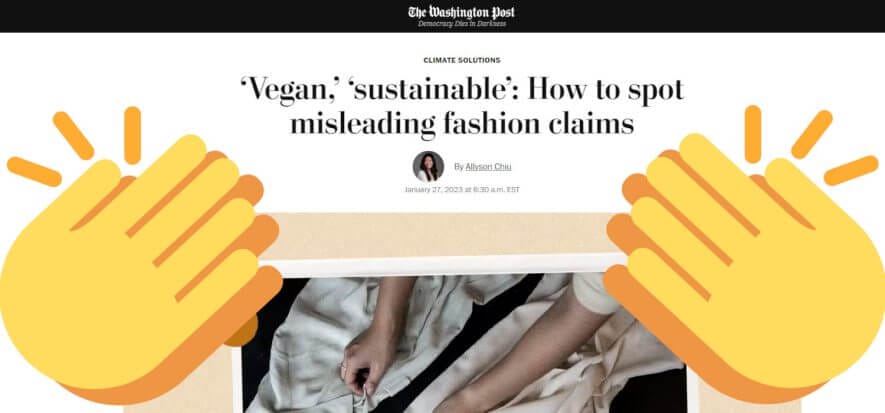Good. Very good. The Washington Post also realized that behind the spread of nomenclatures such as eco-friendly, vegan, bio, ethical, sustainable there (often) is deceit. We are pleased that the news source that became famous for reporting on Watergate, reached the conclusion. And we are even more pleased when we read the specific references to the inconsistency of the supposed superiority claimed by those making materials alternative to leather. At La Conceria, we happily record any time mainstream media arrives at the conclusion. Because while our audience and ourselves know well what is sustainable and what isn’t, it’s up to large news sources and outlets to inform the public.
What the Washington Post realized
We know the premise. Consumers are concerned about the environmental impact of the fashion industry and so brands add a variety of labels, create slogans and make public statements. It’s often greenwashing, as we know. But the Washington Post adds an additional category: clearwashing. What does it mean? That brands wanting to present themselves as very green make random technical claims here and there.
Just enough to appear as if their commercial claims can be corroborated and help them look transparent. But in reality, the type of information they share is smoke: the statements explain nothing. “Clearwashing is like ‘We’re going to provide you the appearance of rich information that ultimately is not meaningful – states Joyner Martinez, associate professor of the department of design, housing and merchandising at Oklahoma State University -. Giving me a street address of a supplier in China doesn’t tell me anything about what goes on there”, and how the products are really made.
Greenwashing at its highest
We are pleased to discover that when the Washington Post writer wishes to cite an example of greenwashing at its highest, vegan leather is discussed. “While vegan leather has become a popular alternative to traditional leather, the name is a rebranding of “pleather,” or plastic leather, a synthetic, fossil-fuel-based material – explains the article -. These faux leathers are largely made of polyurethane or polyvinyl chloride, also known as PVC”. “From a sustainability point of view, definitely vegan leather is not sustainable whatsoever”, concludes Sonali Diddi, associate professor at Colorado State University.
Read also:










